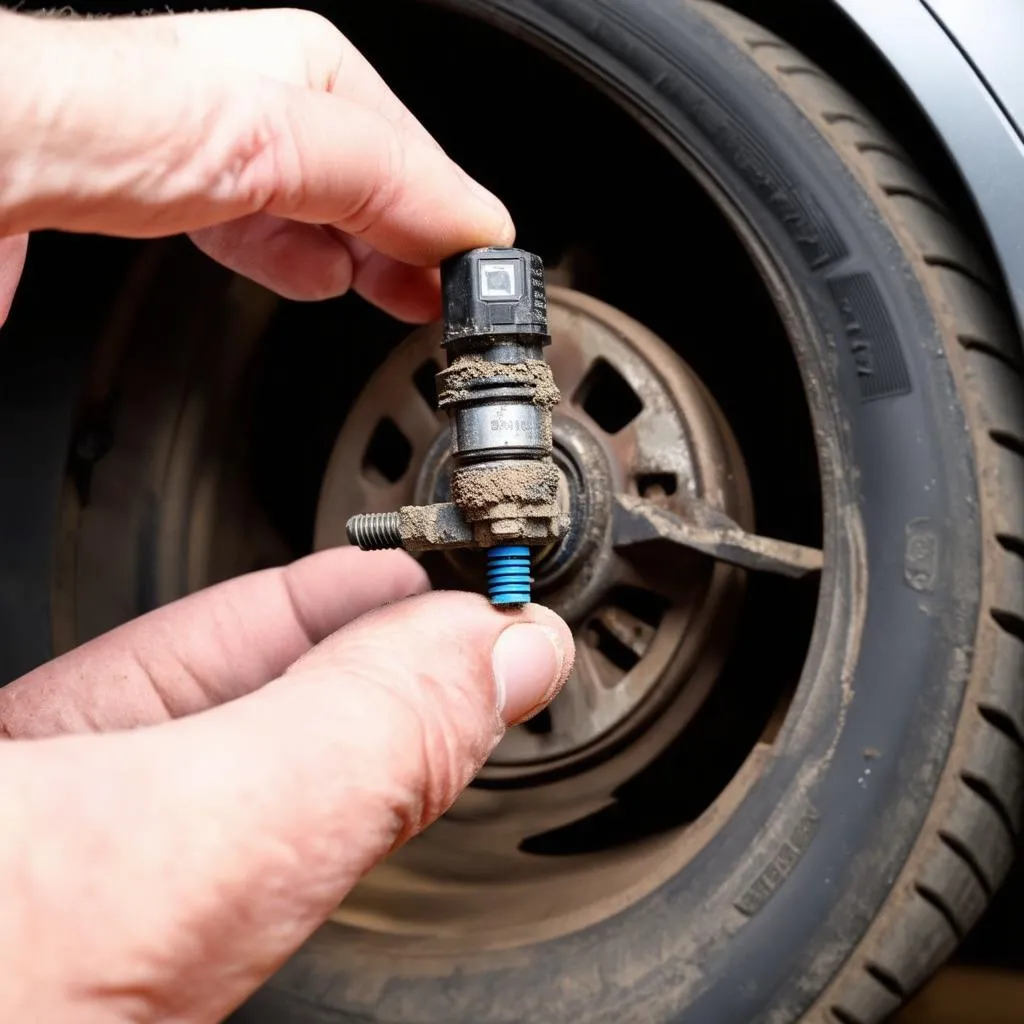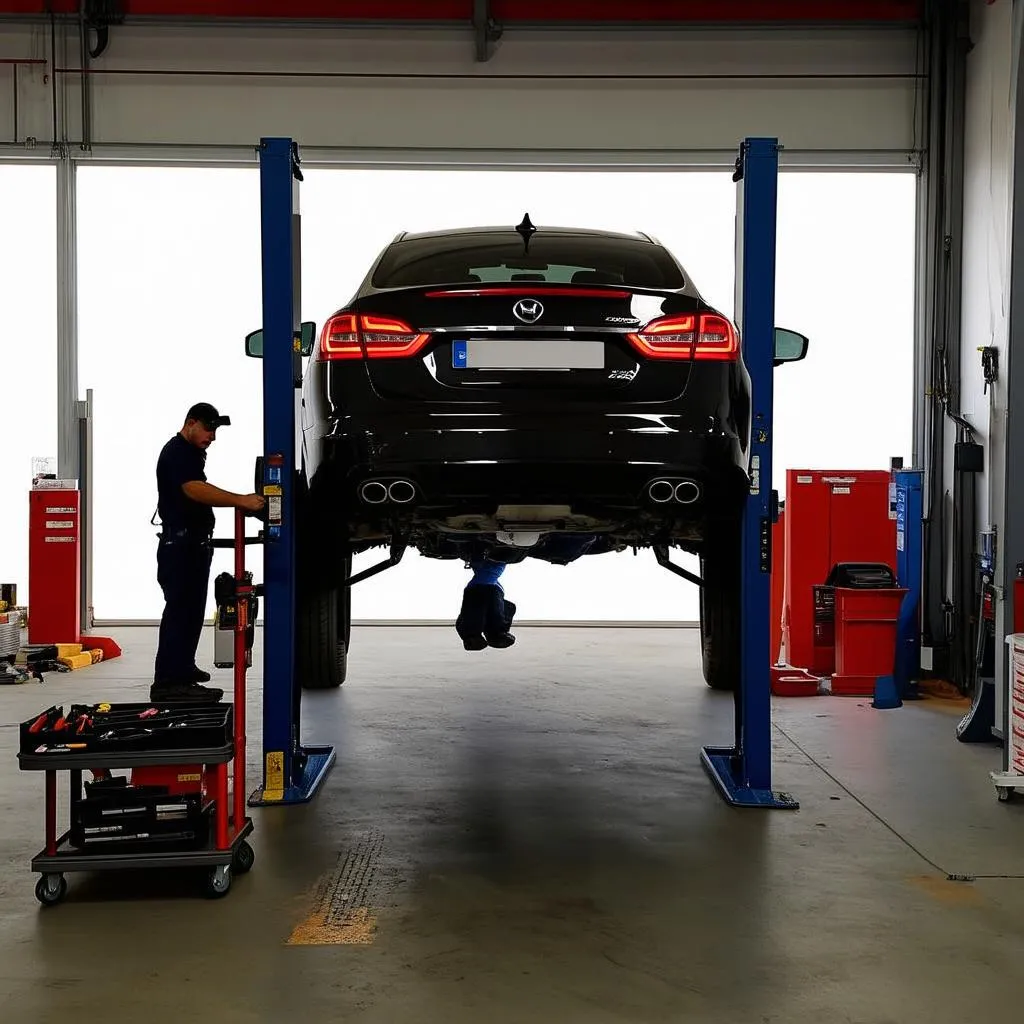Imagine this: you’re cruising down Highway 1 in California, enjoying the Pacific views, when suddenly, your ABS brake light flickers on and then off. Is it a fluke? A temporary glitch? Or something more serious? Before you hit the panic button, let’s demystify the reasons behind this common car issue and learn what to do when those amber warning lights start flashing.
The ABCs of the ABS Brake Light
What Does the ABS Light Mean?
The ABS, or Anti-lock Braking System, is a crucial safety feature that prevents your wheels from locking up during hard braking. That amber light on your dashboard is its way of saying, “Hey, something might be up!”
From a mechanic’s perspective: The ABS light is a signal to investigate potential issues within the system.
From an automotive engineering standpoint: The light is triggered by sensors detecting inconsistencies in wheel speed, brake fluid pressure, or electrical signals.
From a car owner’s perspective: It often translates to a potential safety hazard and potential repair costs.
Common Reasons Your ABS Brake Light Turns On and Off Intermittently:
- Faulty Wheel Speed Sensor: These sensors, often caked in road grime near your wheels, monitor your wheel speed. A malfunctioning sensor can send incorrect signals, confusing the ABS system.
- Dirty or Low Brake Fluid: Brake fluid, the lifeblood of your braking system, can become contaminated or leak, affecting ABS performance.
- Worn ABS Module: The ABS module is the brain of the operation. Over time, it can experience electrical faults or wear and tear, leading to intermittent issues.
- Damaged ABS Wiring: Exposure to the elements can cause wiring harnesses to corrode or fray, disrupting communication within the ABS system.
Let’s hear what John Miller, a seasoned mechanic from Chicago, has to say: “Nine times out of ten, a flickering ABS light points to a sensor issue. It’s like the system is trying to tell you something’s off, but it hasn’t figured out the whole story yet.”
What to Do When Your ABS Light Plays Hide and Seek?
- Don’t Panic: Remember, your regular brakes should still function. However, avoid sudden braking and maintain a safe distance from other vehicles.
- Check Your Brake Fluid: If you’re comfortable under the hood, check the brake fluid level and look for any leaks.
- Schedule an Inspection: A professional mechanic with a dealer-level scanner can accurately diagnose the issue. They’ll read the error codes stored in your car’s computer, pinpoint the root cause, and recommend the necessary repairs.
Ignoring a flickering ABS light is like ignoring a leaky faucet – it might seem minor initially, but it can escalate into a costly repair down the line.
 ABS sensor on a car wheel
ABS sensor on a car wheel
FAQs:
Can I still drive with the ABS light on?
Technically, yes. However, it’s highly discouraged. Your regular brakes should work, but without ABS, you risk losing control during hard braking, especially on slick surfaces.
How much does it cost to fix an ABS light issue?
Costs vary depending on the root cause. A simple sensor replacement might cost a couple of hundred dollars, while a new ABS module can set you back over a thousand.
Can I check the ABS light myself without a scanner?
Some cars allow you to retrieve ABS codes through a series of pedal presses or button combinations. However, a dealer-level scanner provides more detailed information and is essential for a proper diagnosis.
 Car on a lift in a repair shop
Car on a lift in a repair shop
Other Common Questions Related to ABS Lights:
- My ABS light stays on constantly. What does this mean?
- The ABS and brake light come on together. Is this serious?
- Can a low battery cause the ABS light to come on?
For a deeper dive into ABS systems and troubleshooting, check out our articles on Nissan ABS Scan Tools and How to Check ABS Light Without a Scan Tool.
Need Expert Help with Your Car’s ABS System?
Don’t let a flashing ABS light ruin your peace of mind. Our team of automotive experts is just a message away. Contact us on Whatsapp at +84767531508 for immediate assistance with diagnostics, troubleshooting, and solutions. We’re here to help you get back on the road safely and confidently.